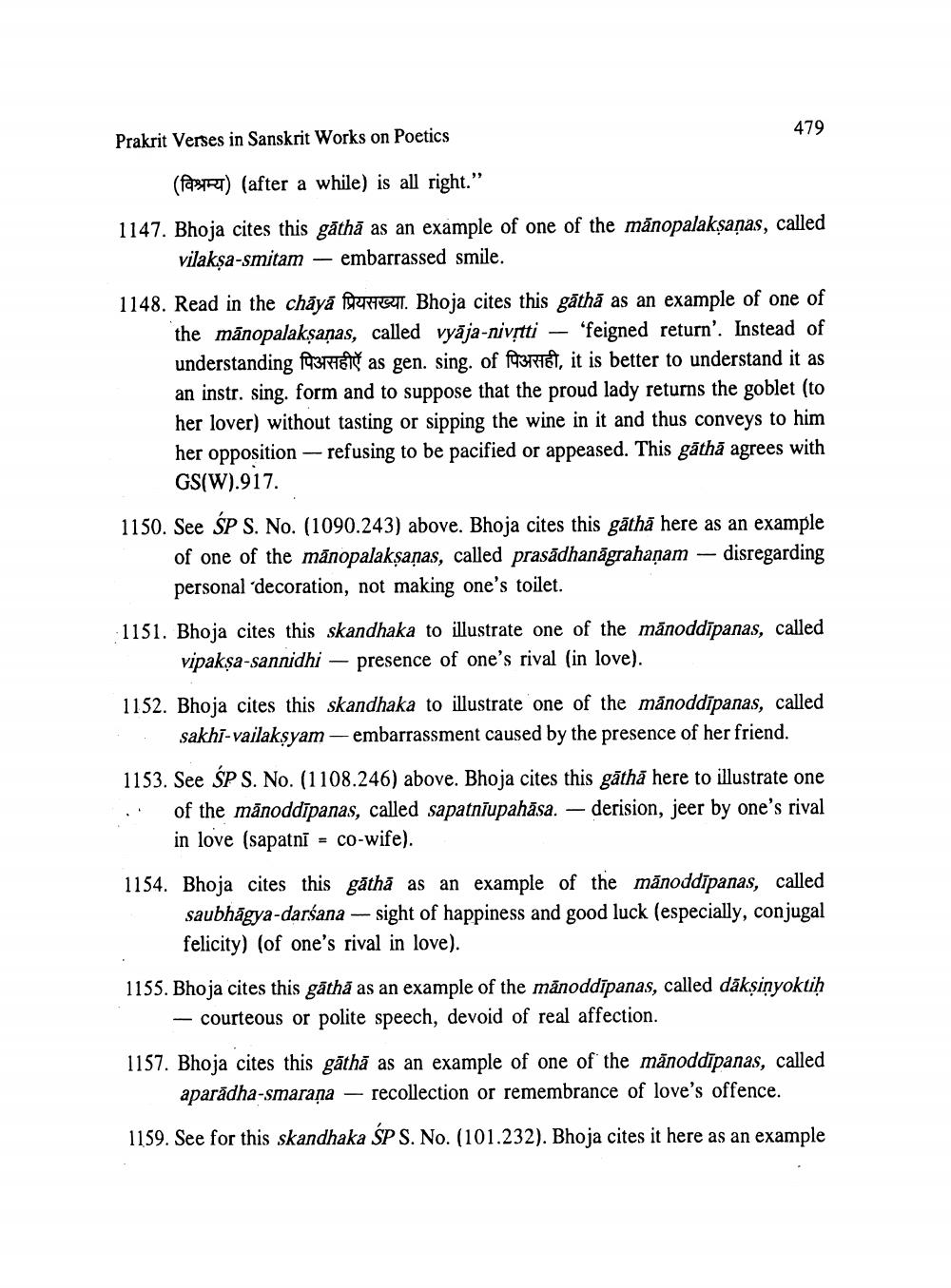________________
479
Prakrit Verses in Sanskrit Works on Poetics
(POSTRI) (after a while) is all right."
1147. Bhoja cites this gāthā as an example of one of the mānopalaksaņas, called
vilaksa-smitam - embarrassed smile.
1148. Read in the chāyā fontein. Bhoja cites this gāthā as an example of one of
the mānopalakṣaṇas, called vyāja-nivetti - 'feigned return'. Instead of understanding 1937161 as gen. sing. of 37216, it is better to understand it as an instr. sing. form and to suppose that the proud lady returns the goblet (to her lover) without tasting or sipping the wine in it and thus conveys to him her opposition - refusing to be pacified or appeased. This gātha agrees with
GS(W).917. 1150. See ŚP S. No. (1090.243) above. Bhoja cites this gātha here as an example
of one of the mānopalakṣaṇas, called prasādhanāgrahaņam - disregarding personal decoration, not making one's toilet.
1151. Bhoja cites this skandhaka to illustrate one of the mānoddīpanas, called
vipaksa-sannidhi - presence of one's rival (in love).
1152. Bhoja cites this skandhaka to illustrate one of the mānoddīpanas, called
. sakhi-vailaksyam- embarrassment caused by the presence of her friend.
1153. See ŚP S. No. (1108.246) above. Bhoja cites this gāthā here to illustrate one :' of the mānoddīpanas, called sapatniupahāsa. – derision, jeer by one's rival
in love (sapatnī = co-wife).
1154. Bhoja cites this gāthă as an example of the mănoddīpanas, called
saubhāgya-darśana - sight of happiness and good luck (especially, conjugal felicity) (of one's rival in love).
1155. Bhoja cites this gātha as an example of the mănoddipanas, called dākṣinyoktih
- courteous or polite speech, devoid of real affection.
1157. Bhoja cites this gāthā as an example of one of the mānoddīpanas, called
aparādha-smaraņa — recollection or remembrance of love's offence.
1159. See for this skandhaka SP S. No. (101.232). Bhoja cites it here as an example




